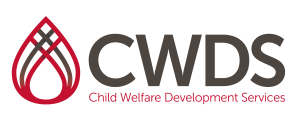CWDS Curriculum
Review of Early Childhood Development for Child Welfare Staff
Level: Advanced Practice – (Lineworker, Supervisor, Manager)
Credits: 6
Intended Audience: Child Welfare Staff who would like increased awareness of current knowledge regarding early childhood development in general, as well as comprehensive understanding of attachment and early brain development as related to chronic trauma. This class is particularly beneficial for those working directly with birth
parents and/or foster adoptive families caring for children birth though five years.
Description of Course: This class will look at Attachment Theory and early brain development for typically developing infants as well as those with a trauma history, as well as developmental milestones, Erikson’s stages of emotional/social development,
Maslow’s hierarchy of needs, as well as the role of culture in development. The class will also help staff assist parents/caregivers in caring effectively for children under the age of five, with chronic trauma histories.
The training will use a power point presentation, small and large group discussion, and experiential activities.
Intended Objectives:
- The participant will be able to apply attachment theory and brain development of children (particularly those with chronic trauma histories), when assessing children’s behavior.
- The participant will be able to assess typical/atypical developmental.
- The participant will be able to identify the need for early intervention services.
- The participant will be able to identify ways in which culture impacts child development.
- The participant will be able to communicate, educate and counsel caregivers in effective behavior management tools and strategies for young children with trauma histories.
Topics Include:
- Attachment Theory, Foundational Brain Development (typical/atypical)
Physical/Social/Emotional Development – the impact of chronic trauma - Role of culture in child development
- Relationship-based, effective behavior management strategies for young children with chronic trauma histories.
Mental Health & Behavioral Health



